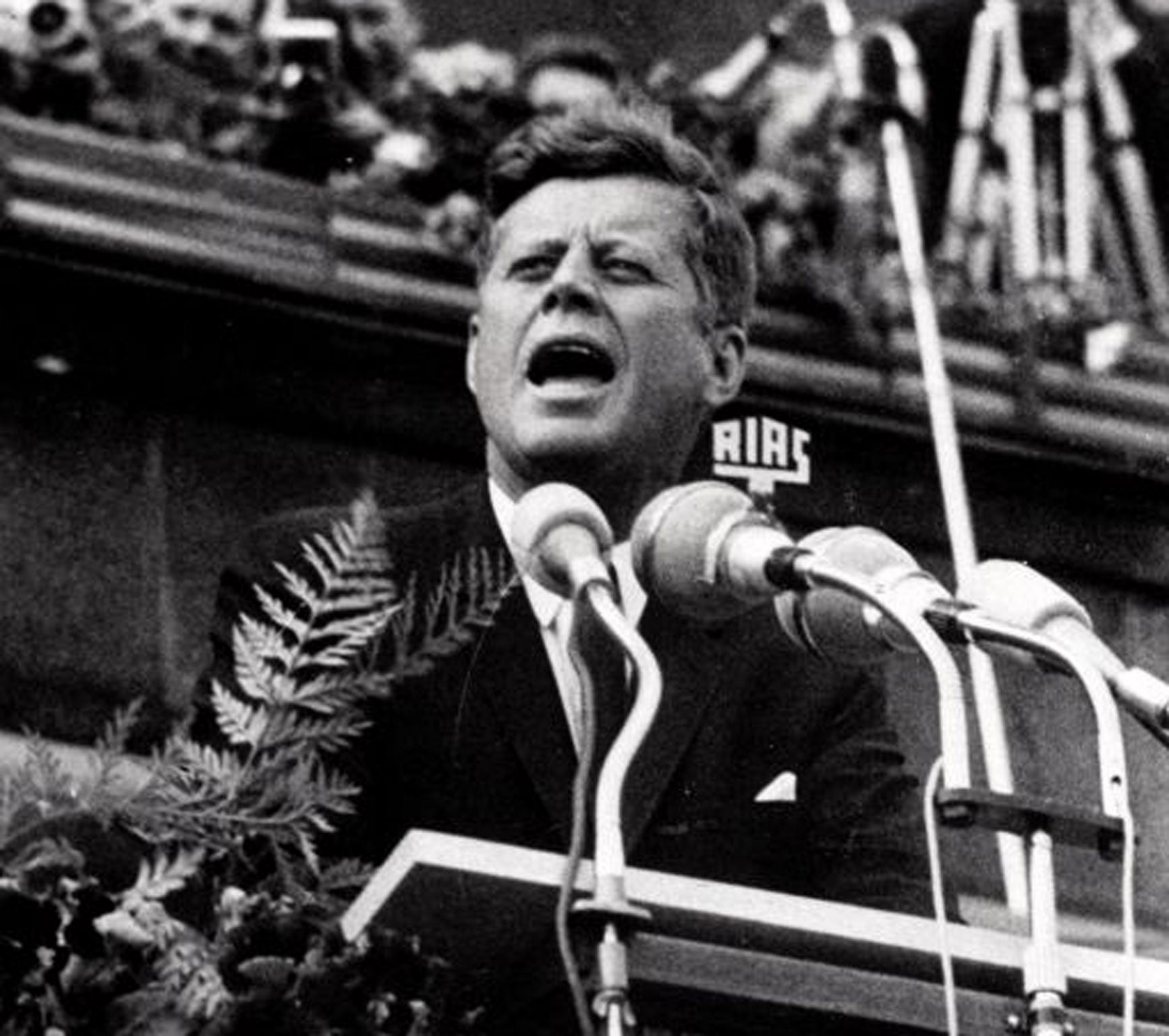A Berliner in 1963 – but did former US president John F Kennedy once admire Adolf Hitler?
The young JFK praised 'superior' Nordic races during visits to Germany

Your support helps us to tell the story
From reproductive rights to climate change to Big Tech, The Independent is on the ground when the story is developing. Whether it's investigating the financials of Elon Musk's pro-Trump PAC or producing our latest documentary, 'The A Word', which shines a light on the American women fighting for reproductive rights, we know how important it is to parse out the facts from the messaging.
At such a critical moment in US history, we need reporters on the ground. Your donation allows us to keep sending journalists to speak to both sides of the story.
The Independent is trusted by Americans across the entire political spectrum. And unlike many other quality news outlets, we choose not to lock Americans out of our reporting and analysis with paywalls. We believe quality journalism should be available to everyone, paid for by those who can afford it.
Your support makes all the difference.President John F Kennedy openly admired Nazi Germany when he toured the country as a young man, according to a new book marking the 50th anniversary of his historic 1963 visit to Cold War West Berlin.
The views once held by one of America’s most esteemed presidents, who won the city’s heart in 1963 when he declared “Ich bin ein Berliner”, are recorded in diaries and letters Kennedy wrote on three visits to Germany in 1937, 1939 and 1945.
The book, John F Kennedy among the Germans, suggests that in the late 1930s Kennedy, who was a student in his twenties, accepted Nazi race theories and approved of fascist rule.
After a visit to the river Rhine in 1937, Kennedy wrote: “Very beautiful, because there are many castles along the route. The towns are all charming which shows that the Nordic races appear to be definitely superior to their Latin counterparts. The Germans are really too good – that’s why people conspire against them – they do it to protect themselves.”
A fortnight earlier, Kennedy, who was touring with his friend Lem Billings, wrote in his diary: “I have come to the conclusion that fascism is right for Germany and Italy. What are the evils of fascism compared to communism?” Billings later recalled that Kennedy was “completely consumed by his interest for the Hitler movement” during their trip.
Kennedy’s writings do not reveal whether he was influenced by his anti-Semitic, pro-Nazi father Joseph, who was US ambassador to London in the late 1930s and regarded by the Nazis as “Germany’s best friend in London”.
President Roosevelt sacked Kennedy Snr in 1940 after he remarked during the Battle of Britain that “democracy is finished in England” and sought to negotiate with Hitler to prevent America entering the Second World War.
But even after Germany’s defeat in 1945, when the Holocaust was common knowledge, JFK appears to have retained an extraordinary fascination for Hitler. By then a naval officer he accompanied the US Secretary of the Navy, James Forrestal, on a tour of Germany that August.
After visiting Hitler’s bomb-damaged Bavarian Berghof residence and his Eagle’s Nest mountain retreat, Kennedy noted in his diary: “Anyone who has visited these places can imagine how in a few years, Hitler will emerge from the hate that now surrounds him and come to be regarded as one of the most significant figures ever to have lived.” He adds: “There was something mysterious about the way he lived and died which will outlive him and continue to flourish. He was made of the stuff of legends.”
Oliver Ulbrich, the publisher of the diary excerpts, said he did not believe Kennedy admired Hitler, but was rather fascinated by him. “Kennedy was trying to understand the fascination that was still surrounding Hitler,” he said.
But by 1945, Kennedy was clearly put off by the defeated Germans and their total acceptance of authority. “It shows just how easy it would be to seize power in Germany,” he wrote after a 1945 visit to a U-boat building yard.
Join our commenting forum
Join thought-provoking conversations, follow other Independent readers and see their replies
Comments